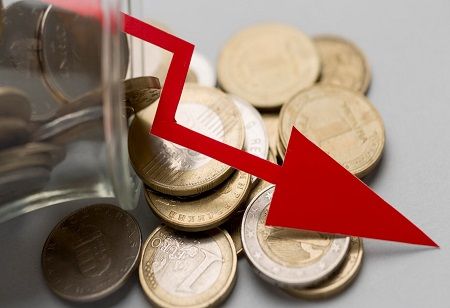Okinawa Autotech, once a leading participant in India's electric two-wheeler market is now suffered a significant setback when had an almost 84% decline in revenue in FY24 and reported a loss of Rs. 50 crore.
According to its regulatory filing obtained from the Registrar of Companies (RoC), Okinawa's operating revenue dropped from Rs. 1,144 crore in FY23 to Rs. 182 crore in FY24.
The PraisePro, iPraise+, Okhi-90, Ridge+, Lite, and R3 are only a few of the electric two-wheeler models produced by Okinawa Autotech, which was founded in 2015. The Gurugram-based company's only source of income was the sale of electric two-wheelers.
Sales of Okinawa fell sharply from FY23's 95,931 units to FY24's 20,873 units. In the same time frame, the company's market share decreased from 13.17% to 2.20%. It has barely sold 3,548 units in the current fiscal year (FY25), giving it a meager 0.31% market share.
Sixty-eight percent of the total budget for the electric vehicle manufacturing was spent on procurement. This cost was cut by 80% to Rs 171 crore in FY24 from Rs 859 crore in FY23 due to scale. In FY24, its employee benefits decreased by 16% to Rs 26 crore. In FY24, Okinawa's advertising expenses dropped by 88% to Rs 4 crore. In FY24, the total cost was Rs 251 crore, up from Rs 991 crore in FY23 due to rent, warranty claims, freight, and other overheads.
Okinawa reported a loss of Rs 52 crore in FY24 as a result of the drastic scale shrinkage. For comparison, the company's FY23 EBITDA was Rs 166 crore. Its EBITDA and ROCE margins declined to -25.8% and -102%, respectively. In FY24, it cost Rs 1.38 per rupee to earn one rupee. Okinawa's entire current assets were worth Rs 276 crore at the end of FY24.
Ola Electric, which recorded revenue of Rs 1,045 crore for the third quarter of FY25, and Ather, which filed its DRHP to raise Rs. 3,100 crore through an IPO, are competitors of Okinawa. Its competitors in the conventional two-wheeler sector are well-known firms like Bajaj, Hero, and TVS Electric.
Numerous problems, such as fire safety concerns, more stringent laws, a fall in customer confidence, and escalating competition from more capable competitors, are to blame for Okinawa's downturn. The business, which was formerly regarded as a leader in the EV industry, is now dealing with the challenging conditions of an evolving market where success hinges on creativity, adherence to regulations, and reliability.


